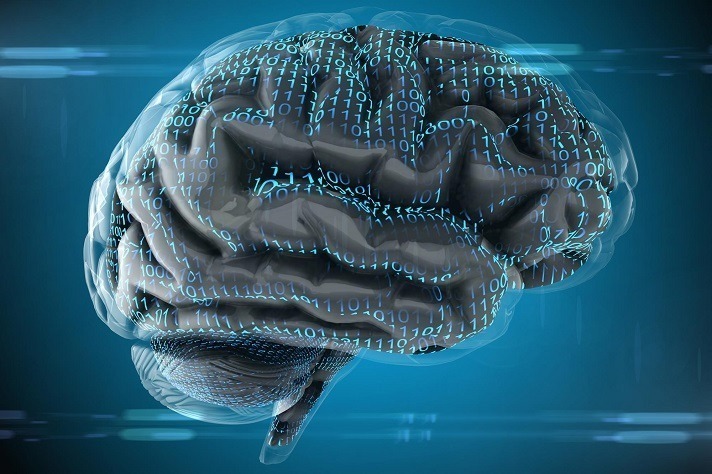Debunking four myths about decision-making capacity to keep Britney Spears and others safe
 Britney Spears’ impassioned remarks in court have raised many questions about conservatorships, including when they’re necessary and whether they effectively protect someone’s best interests.
Britney Spears’ impassioned remarks in court have raised many questions about conservatorships, including when they’re necessary and whether they effectively protect someone’s best interests.
When one loses the capacity to make decisions for oneself the court appoints a guardian, or conservator, to make those decisions. Appointing someone to make decisions about personal and financial matters on another’s behalf has been part of civil society since the ancient Greeks. Today, all jurisdictions in the U.S. have conservatorship laws to protect people who lack the ability to make their own decisions.
As a distinguished professor of law at the University of Southern California, and as a person who was diagnosed over four decades ago with chronic schizophrenia, I have a personal and professional interest in issues at the intersection of law, mental health and ethics. I believe that conservatorships are warranted in certain rare cases, such as someone experiencing severe delusions that put them at financial and bodily risk. But because conservatorships are a serious intrusion into a person’s sense of self, they might not always be the best option.
Here are four myths about decision-making capacity, and ways to address them.
Myth 1: The inability to make one kind of decision means an inability to make any kind of decision
Historically, lack of decision-making capacity was thought of in a global way. That is, the inability to make a single significant decision meant that a person lacked capacity to make all significant decisions.
Today, U.S. law tends to view decision-making capacity more granularly. Different kinds of decisions require distinct capacities. For example, whether people are capable of making decisions about their finances is seen as legally separate and distinct from whether they’re capable of making a decision to marry or refuse medical treatment. Not being able to make one kind of decision may reveal little about whether someone lacks the capacity to make other important decisions.
Making “bad” decisions, or decisions others do not agree with, is not the same as making incompetent decisions. People, especially those with considerable resources, often have family members and associates who are eager to provide a court with examples of an individual’s poor decision-making that may be irrelevant to determining competence.
People sometimes make decisions that others strongly disagree with. That is their prerogative.
Myth 2: Once someone loses decision-making capacity, it never returns
As someone who lives with schizophrenia, I can say from personal experience that decision-making capacity waxes and wanes. At times, I unquestionably lack the capacity to make certain decisions because I have false beliefs, or delusions, about the world and how it works. Thankfully, those psychotic states are not permanent. With proper treatment, they pass and I soon return to my usual self.
Although certain conditions, like severe dementia, can permanently render an individual incapable of making decisions, many conditions do not. Research is increasingly demonstrating that there are ways to help people regain their decision-making capacity sooner, including psychotherapy and medication.
Myth 3: People who are declared incompetent are indifferent to having their decision-making abilities taken away
As Spears made powerfully clear in court, being deprived of the ability to make important decisions about one’s own life can be one of the most deeply distressing circumstances a person can endure. It leaves one feeling helpless and unheard, and can reinforce and prolong mental illness.
Consider what it might feel like to not be able to write a check or use your credit card without asking for permission. Or consider how a parent reacts when an adult child takes away the car keys. In law school I wrote a paper on the use of mechanical restraints in psychiatric hospitals based on my own excruciating experiences as a patient. On reading my paper, a well-known professor in psychiatry unwittingly remarked that “those people” would not experience restraints as he and I would. I’ve always regretted not telling him in that moment that my article was about myself.
For most people of childbearing potential, the ability to make decisions about reproduction is often an important part of their identity. A state action depriving someone of the ability to reproduce is incredibly intrusive, and the stress this causes may itself exacerbate the conditions that interfere with decision-making capacity.
There are other options that ensure a child’s needs are met while respecting the parent’s autonomy. One possibility includes having the parent identify individuals who can care for the child until decision-making capacity returns.
Myth 4: Mental illness or involuntary commitment to a psychiatric hospital indicates lack of decision-making capacity
Under the law, neither a mental illness nor involuntary psychiatric commitment renders a person incapable of making decisions. People who suffer from major psychiatric disorders may be perfectly capable of handling their personal and financial matters and would justifiably be outraged if they were declared unable to do so.
Those whose ability to make decisions appears to be deteriorating can designate a trusted person to make decisions on their behalf. Supported decision-making allows individuals to choose who they want to help them in decision-making while they retain the final say. Similarly, a psychiatric advance directive documents an individual’s mental health treatment preferences and enlists a proxy decision-maker should decision-making capacity be lost in the future.
The importance of respecting autonomy
U.S. law honors individual autonomy by presuming that everyone has decision-making competence unless proved otherwise. There are certainly cases when someone’s ability to make decisions is so compromised that others need to step in. Conservatorships are one way to do this. But there are also less restrictive alternatives that take into account the fact that decision-making capacity waxes and wanes. Keeping Britney and others safe does not mean that they cannot be free to make decisions about their own lives.
 – Elyn Saks is Orrin B. Evans Distinguished Professor of Law, Professor of Psychology, and Psychiatry and the Behavioral Sciences at the USC Gould School of Law. This article was originally published on The Conversation.
– Elyn Saks is Orrin B. Evans Distinguished Professor of Law, Professor of Psychology, and Psychiatry and the Behavioral Sciences at the USC Gould School of Law. This article was originally published on The Conversation.
News in Context:
- What are cognitive abilities and how to boost them?
- Think twice before taking Aderall for cognitive enhancement: It may actually impair working memory and other cognitive abilities
- Study in China finds that retirement may accelerate cognitive decline, even for those with stable income


